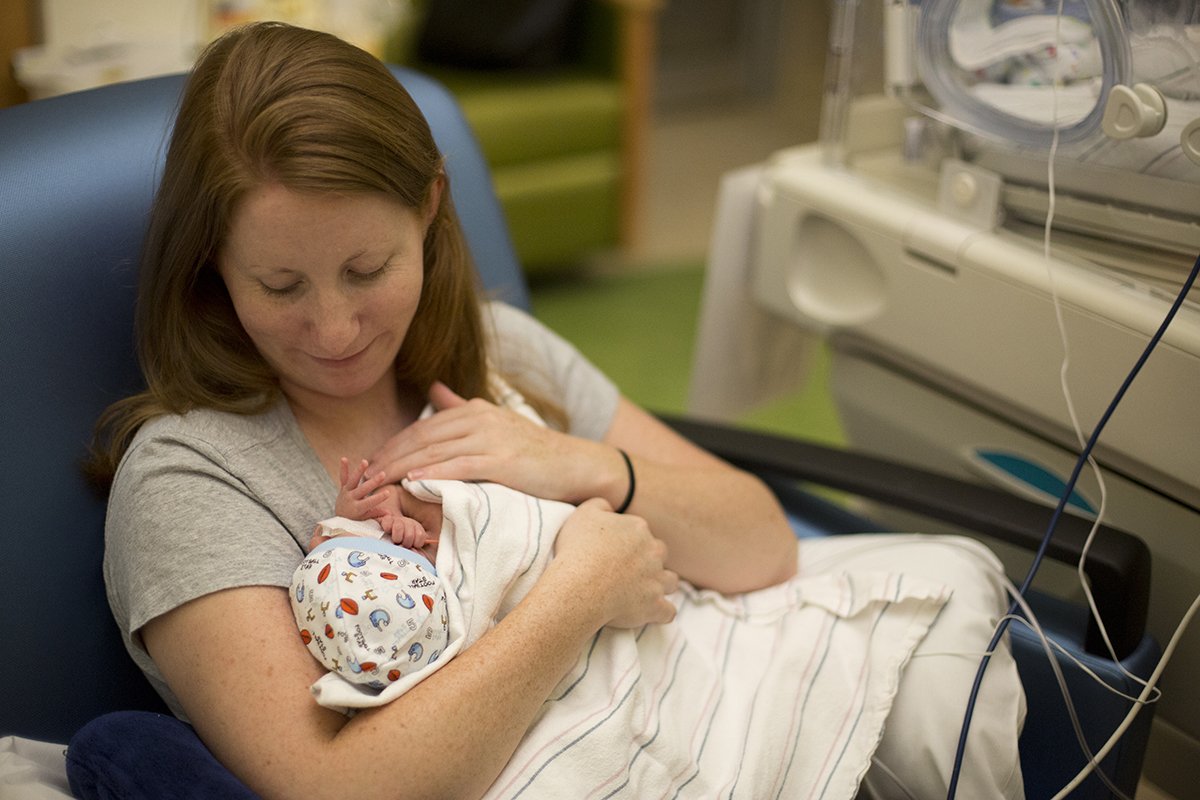
Birth can be one of the most joyous and exciting moments for parents, but despite advances in maternal care, there are still many babies who are born prematurely.
Annually, more than 15 million babies are born prematurely around the world, and prematurity is the No. 1 cause of death in newborns. Infants born prematurely may face breathing difficulties and vision problems, and they are at risk for cerebral palsy and intellectual delays as they grow older.
November is National Prematurity Awareness Month, which was started by the March of Dimes, the leading nonprofit organization for pregnancy and baby health. According to a recent March of Dimes report, premature births in Virginia remained constant from 2014 to 2015 at a rate slightly below the national average. However, that rate is still too high.
As experts, we don’t always know the reasons why some babies are born earlier than planned. Even if a pregnant woman follows all of the medical recommendations, she still can have a premature birth. That’s why pregnant women, or women who are considering pregnancy, should know what resources are available in their communities to care for premature babies, such as neonatal intensive care units. For example, in Northern Virginia, the partnership between Virginia Hospital Center and Children’s National allows neonatal patients in Northern Virginia to have access to pediatric subspecialty services at Children’s National so babies and their mothers can stay together in their own community when that level of care is needed.
If an expectant mother detects an issue early in her pregnancy, she may be referred to the Fetal Medicine Institute at Children’s National to receive a fetal magnetic resonance imaging or other diagnostic tests. Depending on the severity of the potential condition of the fetus, mothers can choose to see a maternal fetal medicine doctor at Virginia Hospital Center, deliver at the same hospital and have neonatologists from Children’s National in the delivery room to ensure the baby’s needs are addressed carefully and quickly.
According to the March of Dimes, some of the risk factors for premature birth include the following:
– Teenage pregnancy
– Women over the age of 35
– Low socioeconomic position
– Health behaviors
– Tobacco use
– Alcohol or drug use
– Low or high body mass index
– Mental health (stress, anxiety, depression)
– Pregnancy and health history
– Fertility treatments
Even when a pregnant woman’s lifestyle doesn’t fall under any of the risk factors listed above, her baby can still be born prematurely. However, there are some general guidelines women can follow to keep themselves and their babies as healthy as possible during pregnancy:
Stay physically active: Working out during pregnancy can boost energy and also reduce the risk of developing conditions like diabetes or pre-eclampsia, a potentially dangerous complication characterized by high blood pressure.
Address mental health: There seems to be a correlation between stress and depression and premature birth, so women should pay attention to this and address any concerns.
Check before taking prescription or over-the-counter drugs: Check if medication is safe to use during pregnancy before taking it. Even some over-the-counter pain killers, including ibuprofen, are not recommended.
Avoid smoking, alcohol and recreational drugs: These substances can harm the developing fetus and lead to premature labor.
Protect yourself from infection: Wash your hands and get the flu shot to guard against infections that may harm you and the developing fetus.
Find more information about prematurity and resources for pregnant women at the March of Dimes website. Find more information about the neonatology services offered at the Children’s National NICU at Virginia Hospital Center here.
Brian Stone, MD, MBA, is the Medical Director of the Children’s National Health System Neonatal Intensive Care Unit at Virginia Hospital Center in Arlington. As Medical Director, Dr. Stone manages and directs operations of the NICU and the Pediatric Hospitalist Team at VHC. Dr. Stone led the expansion and transition to VHC becoming a Level III, 28-bed NICU. He supervises seven neonatologists, two mid-level providers and 11 pediatric hospitalists. Dr. Stone earned his medical degree at Albany Medical College, completed his Neonatology Fellowship at Johns Hopkins University and has been with Children’s National Health System since 2009. He received his MBA from the George Washington University in 2013.




